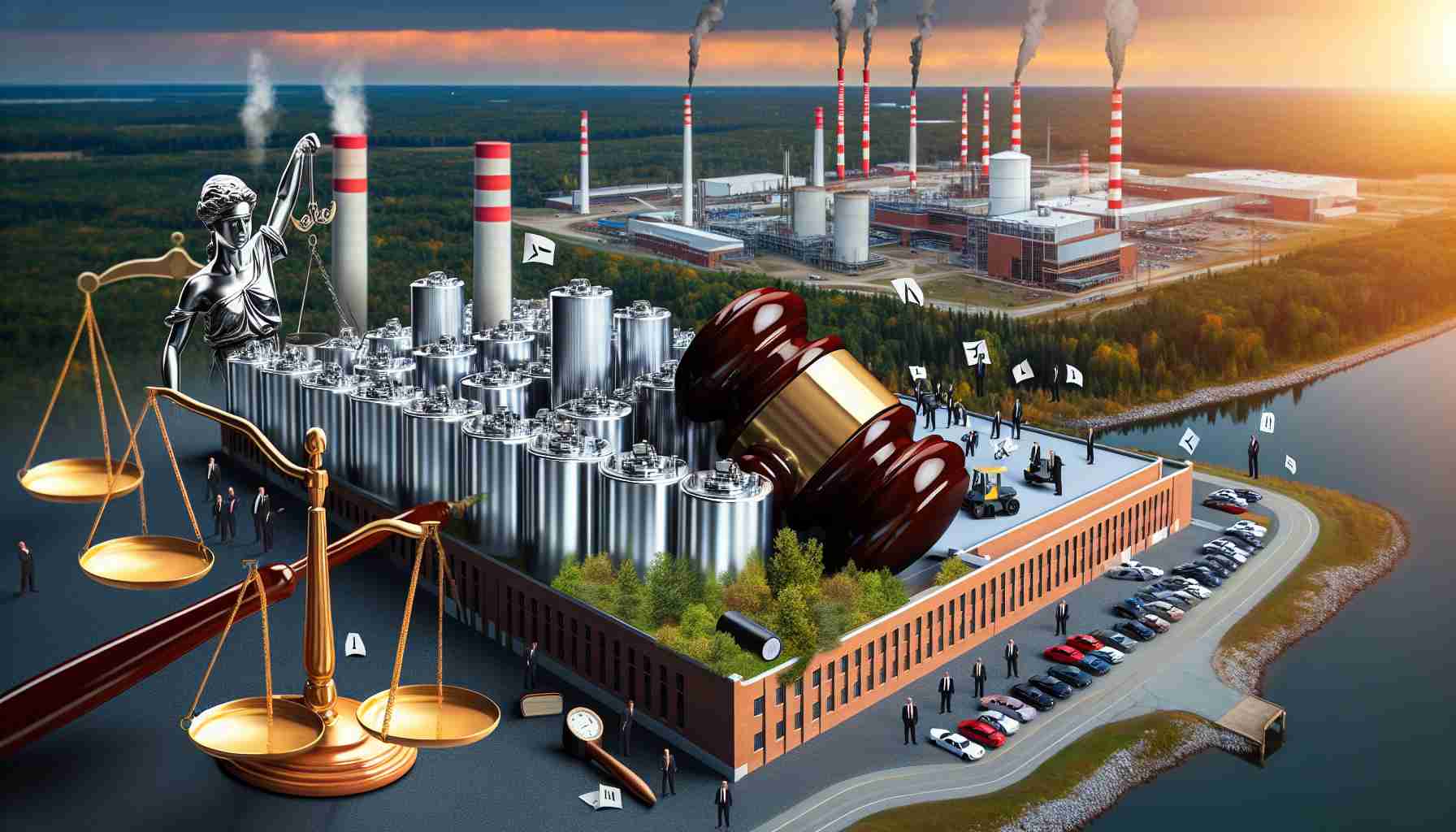Controversy continues to surround the proposed construction of a substantial electric vehicle (EV) battery manufacturing facility in Green Charter Township, Michigan. The legal proceedings intensified when the local government expressed concerns over an agreement that would allow Gotion, a Chinese battery manufacturer, to utilize local water resources for the project.
The township, now led by newly elected officials, recently rescinded a prior resolution that supported Gotion’s plans. In response, Gotion initiated legal action, claiming that the township had violated contractual terms. However, the township officials countered this assertion, arguing that the alleged agreement lacked the necessary enforceability.
The situation escalated further when a federal court rejected Gotion’s attempt to prevent a deposition of Chen Li, the company’s president. Gotion had argued that Li lacked specific insight into the plant’s plans, and there were allegations that the deposition request was influenced by prejudice against his nationality. Despite these claims, the court confirmed Li’s obligation to testify.
Additionally, the court mandated Gotion to disclose various internal documents related to the project, including environmental studies and conceptual designs. As discussions continue, the planned facility has become a contentious issue, raising questions about local economic benefits against national security and environmental implications. This ongoing legal saga highlights the complexities surrounding foreign investment in U.S. infrastructure development.
Essential Tips and Insights on Navigating the Complexities of Local Infrastructure Development
As communities face growing challenges regarding infrastructure development, particularly in the realm of electric vehicle (EV) facilities, it’s essential to equip yourself with practical strategies and awareness. This article presents tips, life hacks, and interesting facts that can aid in understanding and engaging with local projects like the proposed battery manufacturing facility in Green Charter Township, Michigan.
1. Stay Informed
Knowledge is power. Regularly check local news outlets, government announcements, and community forums to understand the developments surrounding infrastructure projects. Being informed empowers you to voice your opinions and concerns effectively.
2. Engage with Local Government
Attend town hall meetings or local council sessions. These gatherings present opportunities for residents to ask questions, express concerns, and influence decisions regarding projects impacting their community.
3. Understand the Legal Framework
Get familiar with the legal processes that govern local infrastructure developments. Knowing your rights as a resident, as well as the obligations of developers and government entities, will better prepare you for discussions and potential advocacy.
4. Evaluate Economic Impacts
Consider the projected economic benefits of proposed projects. Investigate how similar developments have impacted local economies, including job creation and increased business opportunities. This information can inform discussions about the viability and importance of such projects.
5. Reflect on Environmental Concerns
When weighing in on infrastructure projects, consider the environmental implications. Engaging in conversation about sustainability and ecological impact can lead to a more balanced approach to development that respects both economic and environmental standards.
6. Build Community Coalitions
Collaborate with like-minded residents to form coalitions that can collectively address concerns and advocate for transparent and responsible decision-making in your community. Unity can amplify your influence on local government.
7. Keep an Eye on National Trends
The complexities surrounding local infrastructure projects are often reflective of broader national issues, including foreign investments and environmental regulations. Understanding these trends can provide important context for local discussions.
Interesting Fact:
Did you know that the growth of the electric vehicle market is expected to create over 1.5 million jobs in the U.S. by 2030? This highlights the importance of engaging with and preparing for transitions in infrastructure, as they can turn the local economy towards innovative technology sectors.
As you navigate the evolving landscape of infrastructure developments in your community, keep in mind that your voice matters. Engage thoughtfully and persistently in discussions that shape the future of your local environment.
For more insights on the impacts of infrastructure development and community engagement, visit Community Engagement and explore the helpful resources available.
